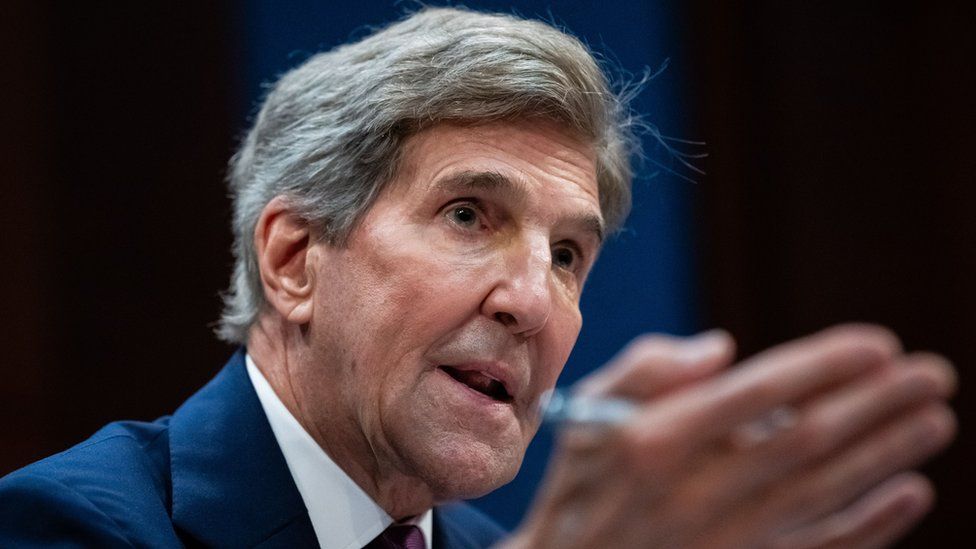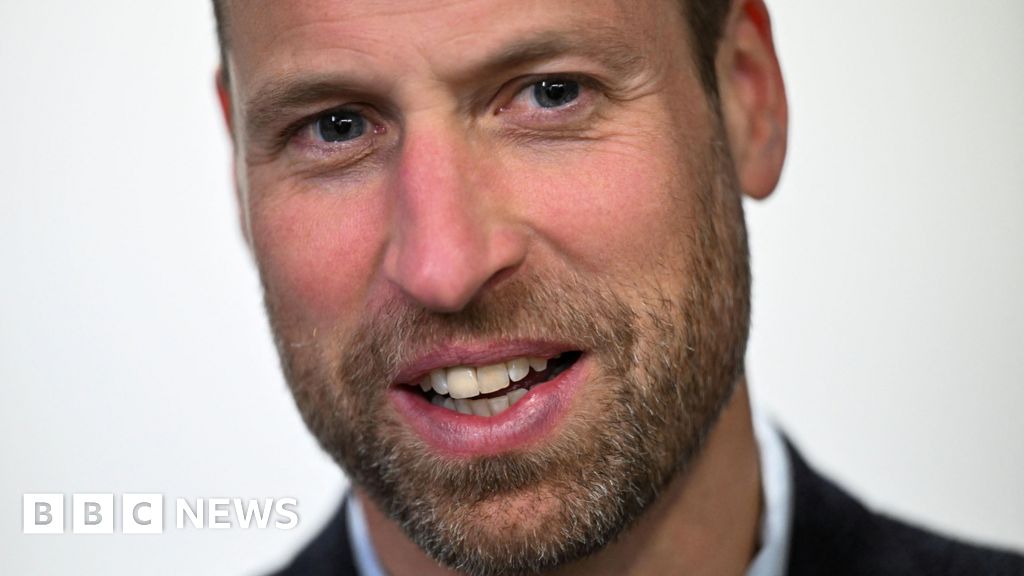 Image source, EPA
Image source, EPA
US climate envoy John Kerry said on Thursday that the US would not pay climate reparations "under any circumstances"
The US says it will not "under any circumstances" pay reparations to developing countries hit by climate change-fuelled disasters.
Climate envoy John Kerry made the remarks at a Congress hearing before flying to China to discuss the issue.
Some countries want major economies - which produce the most greenhouse gases - to pay for past emissions.
A fund has been established for poorer nations, but it remains unclear how much richer countries will pay.
Mr Kerry, a former secretary of state, was asked during a hearing before a House of Representatives foreign affairs committee whether the US would pay countries that have been damaged by floods, storms and other climate-driven disasters.
"No, under no circumstances," he said in response to a question from Brian Mast, the committee chair.
He was speaking days before he was due to travel to Beijing to meet with officials to discuss issues around climate change, including plans for this year's UN climate conference, COP28, which will take place in Dubai, in the United Arab Emirates, in November.
At last year's conference - COP27 in Egypt - more than 200 countries agreed to create a loss and damage fund, which will be financed mainly by developed nations before the money is distributed to "particularly vulnerable" nations.
Although the agreement was billed as one of the major successes of the summit, there are still many details that need to be ironed out, including how much richer nations will pay and how money will be distributed. A series of meetings have been taking place this year aimed at addressing these issues.
Developing nations - which are disproportionately impacted by climate-related impacts - have called for guaranteed compensation from developing countries, who they say are historically responsible for climate change through their high emissions of greenhouse gases.
Richer countries recognise the need to contribute greater funds towards the issue, but framing the payments as reparations is controversial, with some claiming it is a divisive term.
Developing countries also argue that finance targets to address the issue of climate change are too low.
.png)
 1 year ago
6
1 year ago
6









 English (US) ·
English (US) ·